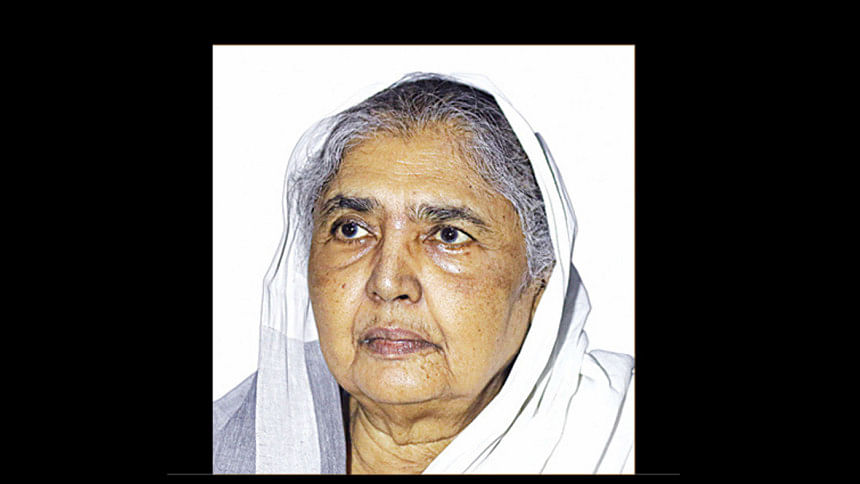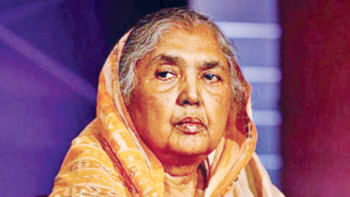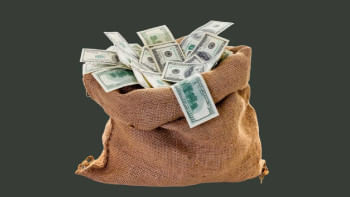A firebrand politician falls silent

A firebrand student leader who had become a national political figure even before graduating, Matia Chowdhury was a rare exception in Bangladeshi politics, which had been plagued by opportunism, corruption, and at times, crime.
A former agriculture minister, Matia was the deputy leader of the recently dissolved 12th parliament and a presidium member of the Awami League.
She died from a cardiac arrest in a hospital in the capital yesterday at the age of 82.
After earning the moniker "Agni Kanya" (daughter of fire) in the mid-60s due to her rousing speeches during the movements leading up to the Liberation War, Matia had become a household name.
She played a significant role in organising the war, and was also at the forefront in leading the mass uprising against military dictator HM Ershad.
In her six-decade-long illustrious political career, Matia made history by becoming the first female president of a student organisation -- the leftist Bangladesh Chhatra Union, backed by the Communist Party of Bangladesh (CPB) -- and serving as a general secretary of the Dhaka University Central Students' Union (DUCSU).
She switched from the Marxist National Awami Party (NAP) to the nationalist Awami League, and became a lawmaker and a cabinet member later on.
Throughout her life, she remained uncompromising in her integrity and maintained a reputation for honesty. Even amid the toxic political culture of the country, Matia commanded respect within her party as well as from the opposition.
The Awami League and Jatiya Samajtantrik Dal have expressed their sorrows at her demise.
Matia Chowdhury was born on June 30, 1942 in Pirojpur. Her father was a police officer.
She became a member of Chhatra Union when she was a student at Eden Mohila College. She completed her graduation from Dhaka University.
She was married to Bazlur Rahman, legendary editor of the daily Sangbad, a freedom fighter, and a former leader of the CPB. He passed away in 2008.
Matia was the DUCSU general secretary from 1964 to 1965.
After the Chhatra Union split that year due to the division in the international communist movement, she became president of the organisation and led the "Pro-Moscow" group.
Named the "Matia group", it played an active role in organising the movement against Pakistani military dictator Ayub Khan, the mass upsurge of 1969 and the Liberation War of 1971.
She was imprisoned at least four times under the Pakistani regime.
After the war, Matia joined NAP and was later made the organising secretary. Her speeches helped significantly in garnering support for the party during the first general election in 1973.
She then joined the AL in late 1979.
As part of the party, she played an integral part in various movements, including during the anti-Ershad protests; the demands for the formation of a caretaker government; and during the party's political change over in 2007-2008.
She also had to face imprisonment under various military governments.
From 1983 to 1990, she was arrested at least eight times.
During the 1991-1996 BNP rule, a photograph published in national dailies showed Matia, during a protest, being beaten with sticks by law enforcers. The photograph stirred the nation.
At the time, she was a lawmaker. She was also elected MP in the 1991 election from a constituency in Sherpur, but had resigned along with other AL MPs in 1994.
She was then elected MP in 1996, 2008, 2014, 2018 and 2024, from the same constituency.
Matia was made agriculture minister when AL came to power in 1996, and held the same post again for three consecutive terms from 2009 to 2019.
Matia and a few others played a significant role in keeping AL politics afloat in 2007-2008, when the party chief Sheikh Hasina and some other top leaders were behind bars.
Mujahidul Islam Selim, former president of CPB, said the first 25 years of Matia's political career was as a member of a progressive force and the remaining 45 was spent as an AL leader.
He added that many do not know that she was an underground member of the communist party when she was a NAP leader. "She changed her political stance when she joined the Awami League."
Selim, also a former president of Chhatra Union, said, "As a person, Matia was honest. Corruption and greed never touched her. But people also evaluate a person based on their party identity."
In this world of unabashed adulteration and pretentious leaders, Matia Chowdhury remained authentic -- a true politician and a trailblazer.
Matia's body was kept at the hospital morgue and she will be buried at her husband's grave in the capital's Mirpur Martyred Intellectuals' Graveyard today after a namaz-e-janaza, family sources said.

 For all latest news, follow The Daily Star's Google News channel.
For all latest news, follow The Daily Star's Google News channel. 





Comments